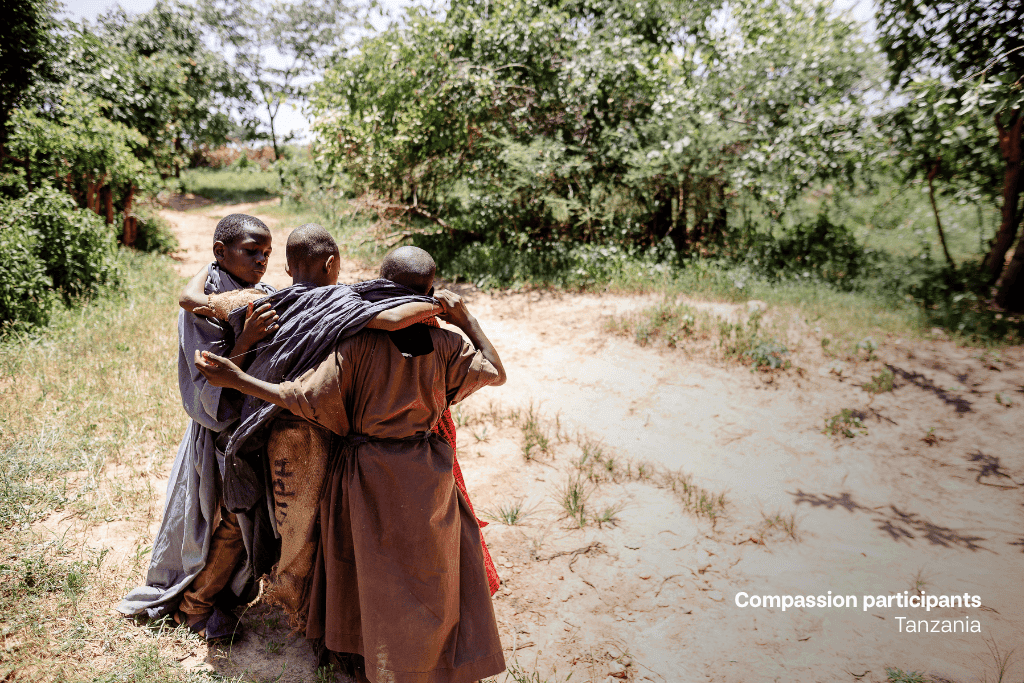The Good Samaritan
How to move with compassion in a hurting world

Jesus shares the parable of the Good Samaritan after being asked, “What is the most important commandment?” You can find the story in the New Testament gospel of Luke.
Jesus starts by explaining that the greatest commandment is to “love the Lord your God with all your heart, and with all your soul, and with all your, mind,” whilst the second call is to “love your neighbour as yourself”.
Jesus uses the parable of the Good Samaritan to illustrate who that neighbour is. The story shows a man (a first century Samaria national) being moved with compassion when he sees the plight of a wounded man on the side of the road.
Luke 10: 30-37: The Parable of the Good Samaritan in full
Jesus said: “A man was going down from Jerusalem to Jericho, when he was attacked by robbers. They stripped him of his clothes, beat him and went away, leaving him half dead. A priest happened to be going down the same road, and when he saw the man, he passed by on the other side.
So too, a Levite [some translations say ‘Pharisee’], when he came to the place and saw him, passed by on the other side. But a Samaritan, as he travelled, came where the man was; and when he saw him, he took pity on him.
He went to him and bandaged his wounds, pouring on oil and wine. Then he put the man on his own donkey, brought him to an inn and took care of him. The next day he took out two denarii and gave them to the innkeeper. ‘Look after him,’ he said, ‘and when I return, I will reimburse you for any extra expense you may have.’
“Which of these three do you think was a neighbour to the man who fell into the hands of robbers?” The expert in the law replied, “The one who had mercy on him.”
Jesus told him, “Go and do likewise.”
The story of the Good Samaritan retold by children in Tanzania
Children in the Compassion programme in Tanzania were inspired to retell the parables of Jesus. Why not use this Bible story resource for your Bible study or in a church service.

A Good Samaritan devotional
The Good Samaritan chose to see the need

The Good Samaritan didn’t close his eyes to the need. Instead of ignoring the man and his injuries, he chose to fully see his distress.
And that’s exactly what Jesus does:
In Matthew 9:36 we read that ‘When he saw the crowds he had compassion on them.’
And in Luke 10:20, the parable of the prodigal son reminds us that ‘While he was still a long way off his father saw him and had compassion on him’
The truth is, it’s tempting to pass by. To scroll past suffering. To hear the statistics and feel too overwhelmed.
Every day, 14,000 children die from preventable causes like malaria, diarrhoea and respiratory infections.
Nearly a billion people go to bed hungry.
800 million people lack access to safe, clean water.
122 million girls are out of school.
2.4 billion people still don’t have a toilet.
These numbers are hard to read. And behind every one of them is a child, a parent, a community.
It’s uncomfortable to see because when we see clearly, it becomes harder to look away. We’re compelled to respond.
Reflect: When you encounter broken humanity, do you close your eyes out of fear or open your eyes in faith that God can use you to bring healing into someone’s life?
The Good Samaritan allowed himself to feel the pain

Loving God with all our heart means allowing him to shape our emotions—so that when we see suffering, we don’t retreat, we respond.
That’s what it means to truly feel Jesus at work in your life; it’s discipleship. It wasn’t enough to just see the need, the Samaritan allowed himself to feel his pain. And the pain wasn’t simply someone else’s responsibility – it became his.
You might be saddened by what you see on the news, or the facts you read about children in poverty, but to love God with our minds means we must be open and vulnerable to feel that pain so we can also be obedient and respond as Jesus would.
This Samaritan was aware of the danger and the inconvenience, and yet his heart was open and he reached out anyway.
Reflect: How can your faith enable you to be more open to the pain and suffering of your local and global neighbours without becoming overwhelmed? Ask God how he wants to stir your heart.
The Good Samaritan moved with compassion

Faith that feels but doesn’t act is incomplete. James puts it plainly in his New Testament letter: “Faith by itself, if it is not accompanied by action, is dead.” James 2:17
The story Jesus tells explains that the Samaritan took immediate action, administering first aid and then giving the injured man access to healthcare.
And this was despite the fact Samaritans and Jews were often seen as enemies. Added to this, within the laws of Judaism in the Old Testament, touching a body could render you ‘unclean’. For example, in Leviticus 21:1-3, priests are given specific instructions on not touching bodies of certain people who have died.
But no matter how different, how inconvenient or how unexpected, as follower of Jesus, we’re asked to love. The Samaritan exemplifies this love: he ‘bandaged [the man’s] wounds pouring on oil and wine.’
Paul says in Galatians 3:28 “There is neither Jew nor Gentile [in some translations ‘Greek’], neither slave nor free, nor is there male and female, for you are all one in Christ Jesus.”
The Good Samaritan wasn’t hindered by the fact he was different, he simply had a heart to make a difference. He was willing to cross political, racial, cultural and social barriers and prejudices because he saw someone with needs and had the resources to help.
That’s what happens when we love God with all our strength. Nothing is held back: not our schedules, not our comfort, not our wallets, not our hearts. Ultimately, any sacrifices we may have to make in this life will pale into insignificance compared to eternal life.
If you know Jesus personally, then Christ is living in you. There’s an incredible treasure within us that needs to be shared with others so they can discover Jesus’ love and power too.
In the Good Samaritan passage, the Priest represents religion and the Levite, represents ritual. But these aren’t what God looks at; he looks at our hearts. As James 1:27 tells us, the only “Religion that God our Father accepts as pure and faultless is this: to look after orphans and widows in their distress and to keep oneself from being polluted by the world.”
And so, it’s the Good Samaritan who represents love and relationship. He gave his time, his touch and his treasure to restore a broken person.
Reflect: What simple and decisive action can you take to help someone living in poverty? How can you move with compassion today?
Real-life Good Samaritans to inspire you
At Compassion, we hear incredible stories of the kingdom of heaven breaking in and children, project staff and supporters showing selfless love to their neighbours.
How to love your neighbours: Moses’ story

It was a cool day in Kenya, near Homa Bay, an eastern inlet of Lake Victoria, east Africa. Moses’ mother was given a food parcel packed with sugar, flour, oil, beans, rice, tea and a box of biscuits – essential items for a family that often struggled to gather enough food for one meal a day.
Seeing other hungry children around him, Moses was moved with compassion. Without thinking, he took one of the packets of biscuits from the box and started giving them out to his neighbours. It was as if there was no question in his mind – if he had something and his friends did not, the obvious next step would be to share it.
Showing Jesus’ love to people: Magnim’s story

Magnim owned only one skirt, a second-hand t-shirt and a pair of shoes when she was registered into Compassion’s Child Sponsorship Programme. A special financial gift from her sponsor soon changed that, though! Her parents used the money to buy their little girl some new clothes.
The brightly patterned dresses looked beautiful on her. But as thrilled as Mangim was, she wished her friends had new clothes to wear, too. On Sundays, they wore their school uniforms to church: the only clothes they had. Wanting to bless her friends too, she insisted on giving away five of her new clothes – half of what she owned – to her friends. They were overwhelmed at her generosity.
“It takes only love to do that because even for us adults it is difficult to share our goods with our friends,” says Esso, mum to one of Magnim’s friends. “Magnim’s gesture is an act of love.”
If you’ve enjoyed this devotional on the story of the good Samaritan and are looking for more on discipleship and God’s Word, you may also be interested in:
40 Inspiring Bible Verses About Love: Discover what the Bible says about love
If you’re looking for a Bible verse that is encouraging, click here
Sources: Bible Gateway: The Parable of the Good Samaritan
Words by
Becca Stanley, Tim Robertson
Share:
Share:
Pray with us
Join thousands of people praying to end poverty, take action through our appeals and activities, and be inspired by how God is changing lives.
Get a little Compassion in your inbox with our Prayer and Stories email.
Remember, you can unsubscribe at any time. Please see our Privacy Policy for more information.
